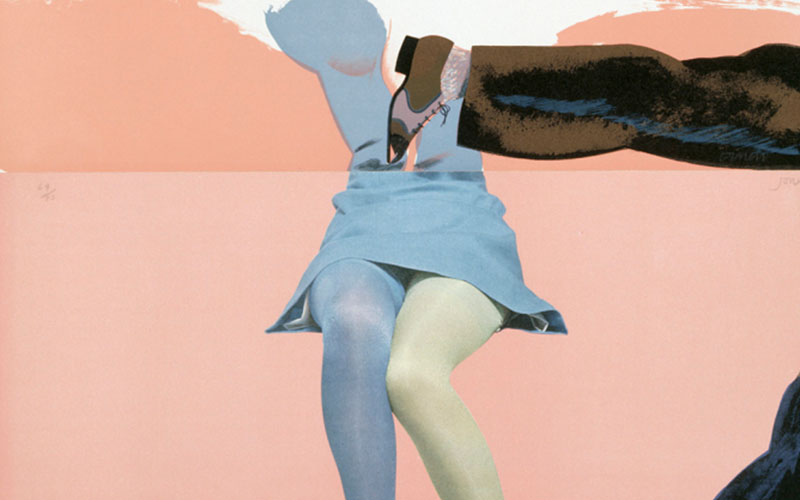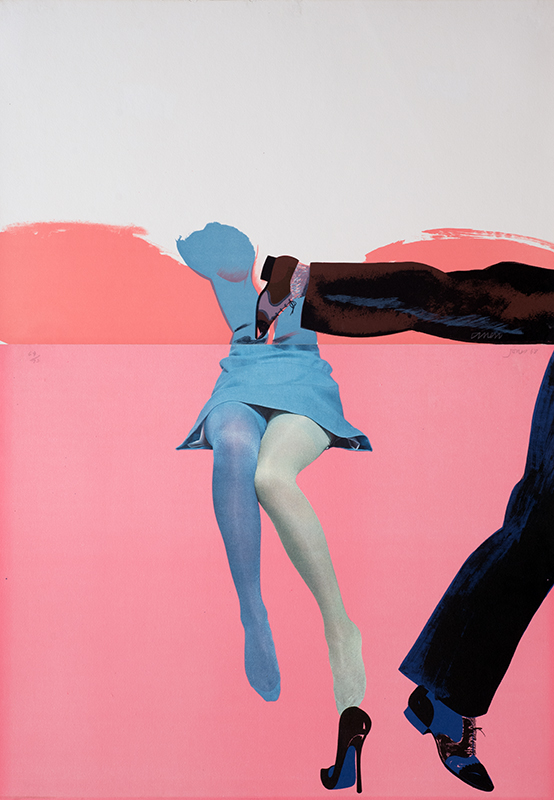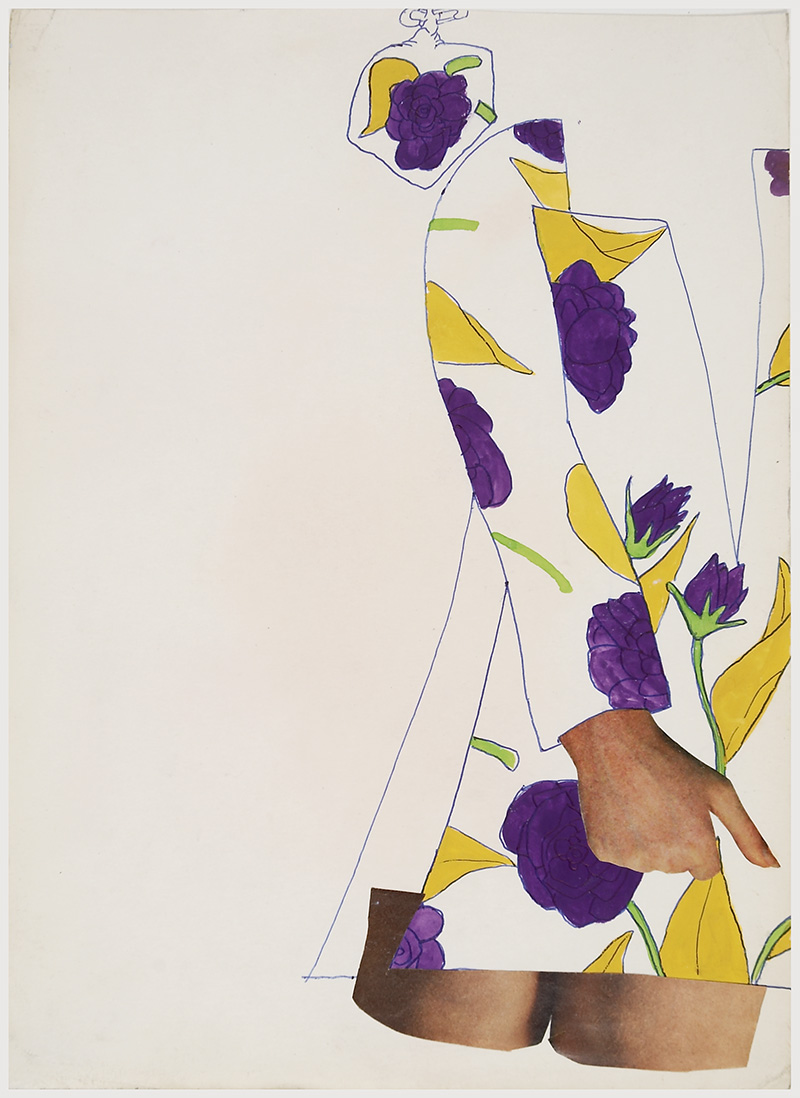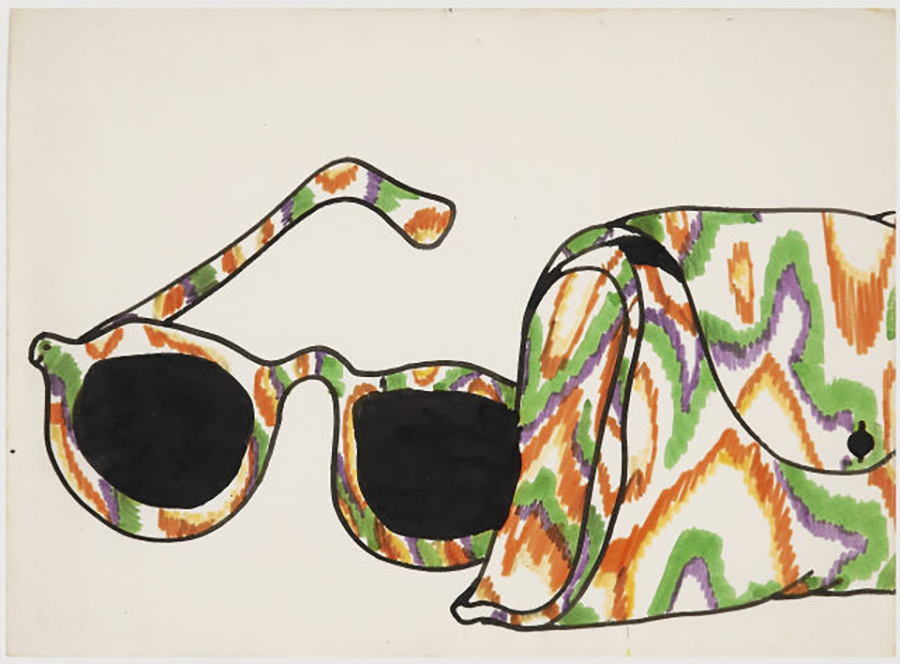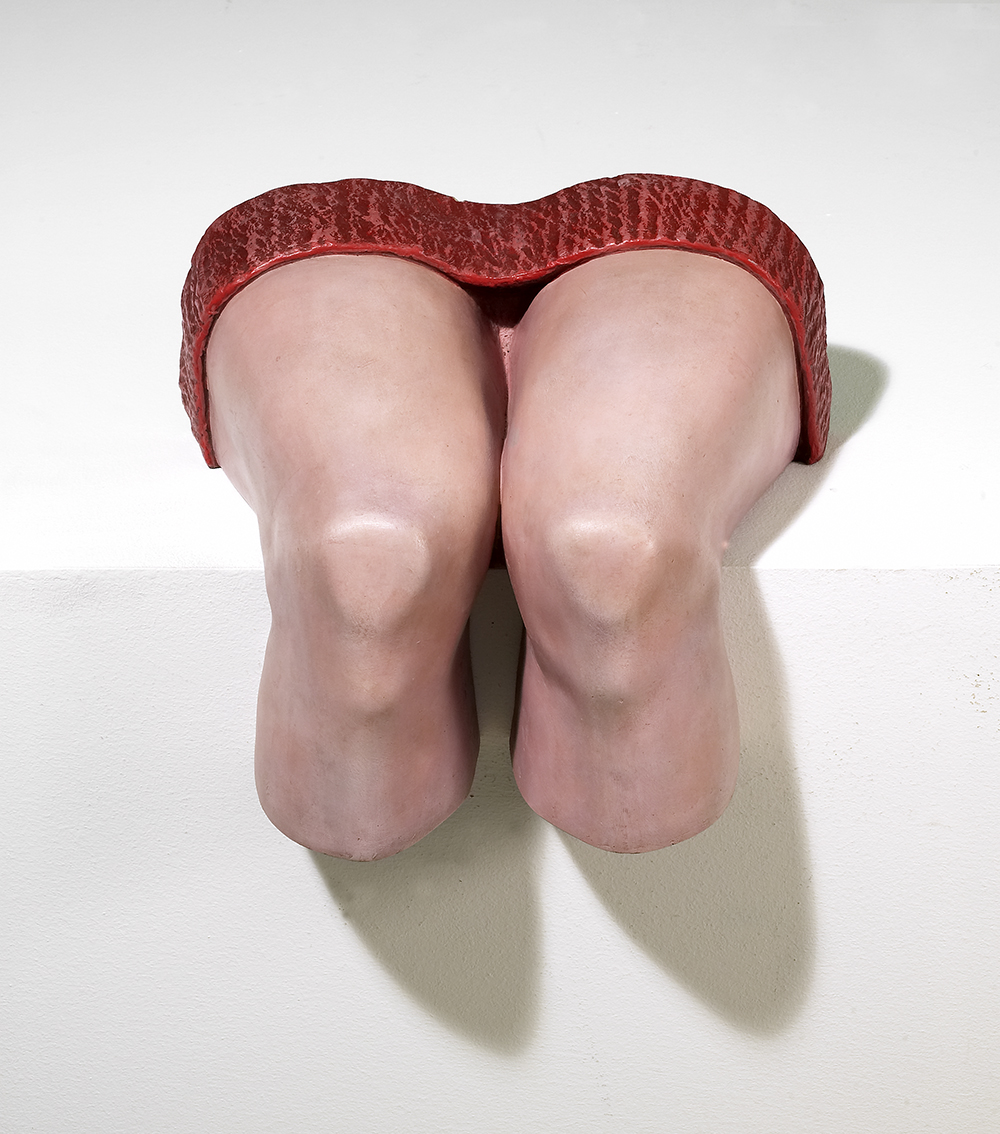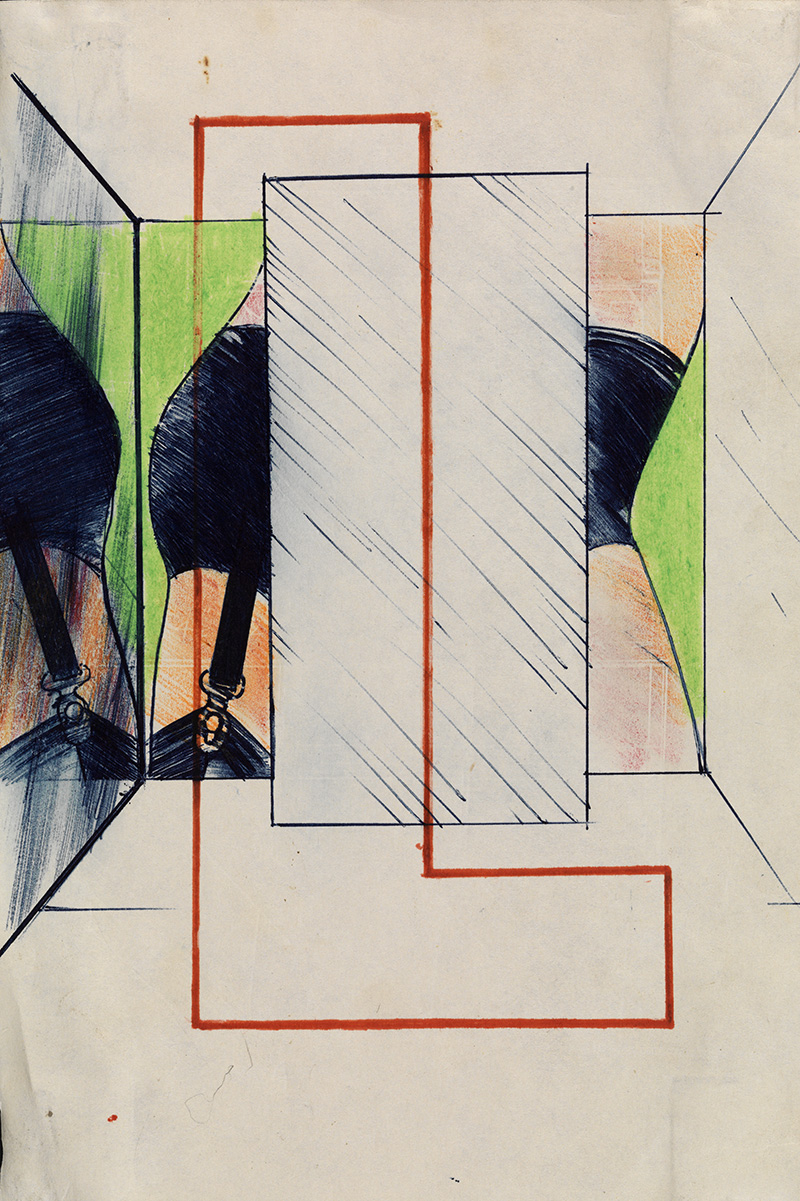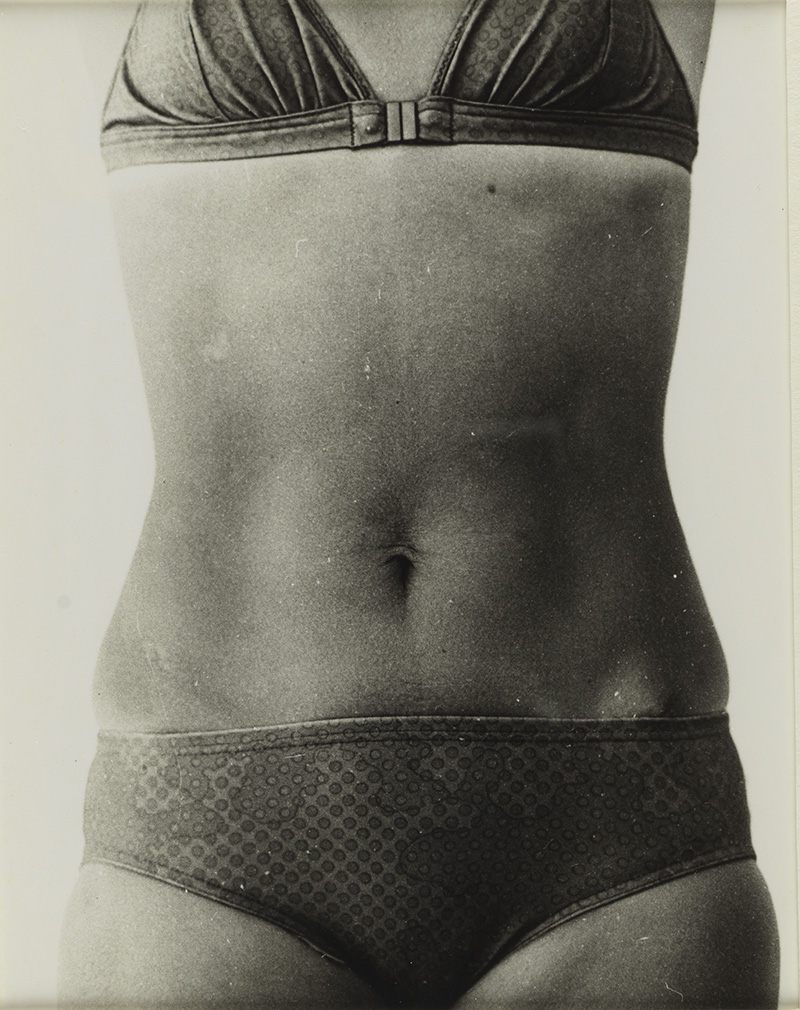Post-Pop. Beyond the commonplace
Event Slider
Date
- Closed on Tuesday
Location
Main Gallery Calouste Gulbenkian FoundationThis exhibition presents, in its entirety, works produced almost exclusively between 1965 and 1975, in Portugal and England. Some of them are united by a witty divergence from the commonplace put forward by Pop Art. And, in the case of the Portuguese artists, true defectors from the mediocrity which characterised Portugal, we find a common link in seeking inspiration and motivation from abroad, in Paris and in London in particular, which was a true Mecca in the 1960s.
Critiques of Pop Art began to emerge in the second half of the 1960s. In the case of the Portuguese artists, this was accompanied by experimentation based on this language, whose assimilation in turn appeared to deflect or be deflected, allowing the area of influence of Pop Art to be expanded and transformed. The work produced by Teresa Magalhães at the end of the 1960s, almost unheard of until now, exemplifies this assimilation, while the work of Ruy Leitão, produced in London and inspired by a well informed academic background – the artist was a pupil of Patrick Caulfield who considered him to be one of his most brilliant students –, is situated in an area of critical separation which we term ‘post-pop’. Another common link between these artists is the interventionist thought which they developed regarding the artistic object itself, situating them among initial experiments in conceptual art while maintaining the desire to communicate which underpinned Pop Art.
Here we see the emergence of new artistic languages, experienced first-hand in an Anglo-Saxon context. The English influence in Portugal grew as a result of the departure of many artists to London. The Portuguese artists responded to the anachronistic situation in their country and to the colonial war which began in 1961 and lingered on until 25 April 1974, the date which marked the end of the conflict and the establishment of democracy in Portugal.
The exhibition features a number of works by English artists which conspicuously deviate from Pop Art – Bernard Cohen, Tom Phillips, Jeremy Moon, Allen Jones, among others –, alongside a larger number of works by Portuguese artists including Teresa Magalhães, Ruy Leitão, Eduardo Batarda, Menez, Nikias Skapinakis, Fátima Vaz, Clara Menéres, João Cutileiro, José de Guimarães, among numerous others.
Curators: Ana Vasconcelos and Patrícia Rosas
Know more about the exhibition
With the support of the British Council.
Complementary Programs
Talk with the curators Ana Vasconcelos and Patrícia Rosas
Saturday, 21 April, 16:00
Guided tours
Fridays, 4 May, 1 June and 6 July, 15:00
Saturdays, 12 May, 9 and 23 June, 15:00
More information
[email protected]
Pop and Post-Pop – The British Connection
With Alex Seago
Wednesday, 23 May, 18:30 – Auditorium 3
Know more
Conversations on Politics
Saturday, 12 May, 16:00 – Room 1
Know more
Conversations on Comic Strips
Saturday, 26 May, 16:00 – Art Library
Know more
Conversations on Film Societies
Saturday, 2 June, 16:00 – Room 1
Know more
Conversations on Feminism
Saturday, 30 June, 16:00 – Founder’s Collection
Conversations on Music
Saturday, 7 July, 16:00 – Auditorium 3
Know more
Conversations on Jazz
Saturday, 21 July, 17:00 – Auditorium 3
Know more
Stockhausen’s Stimmung
Gulbenkian Choir Soloists
Saturday, 30 June, 18:00
Know more
Sunday, 1 July, 18:00
Know more
Arte viva! 1, 2, 3…
Guided tours/workshops for school groups in English
Mondays, 23 and 30 April, 14, 21 and 28 May, 10:10
Wednesdays, 16, 23 and 30 May, 10:10
Fridays, 20 and 27 April, 4 and 25 May, 10:10
Booking required
See events
Guided tours in Portuguese or English
Booking: (+351) 217 823 800)
[email protected]
More information
[email protected]
